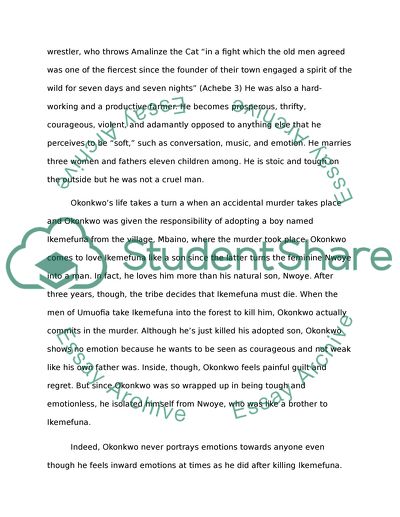Cite this document
(“Things Fall Apart (Okonkwo Research Paper Example | Topics and Well Written Essays - 1750 words”, n.d.)
Retrieved from https://studentshare.org/family-consumer-science/1421361-things-fall-apart-okonkwo
Retrieved from https://studentshare.org/family-consumer-science/1421361-things-fall-apart-okonkwo
(Things Fall Apart (Okonkwo Research Paper Example | Topics and Well Written Essays - 1750 Words)
https://studentshare.org/family-consumer-science/1421361-things-fall-apart-okonkwo.
https://studentshare.org/family-consumer-science/1421361-things-fall-apart-okonkwo.
“Things Fall Apart (Okonkwo Research Paper Example | Topics and Well Written Essays - 1750 Words”, n.d. https://studentshare.org/family-consumer-science/1421361-things-fall-apart-okonkwo.


